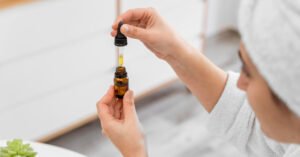

Let's talk about
Hydration and Health
WATER:
What we call hydration is the process by which our body is supplied with
liquid (water) to nourish cells and enable them to perform their usual
functions. It is important to highlight:
- Water is the most important nutrient in the body. It is estimated that
the body can survive up to 8 weeks without food but only days without water. - Water makes up between 55% and 70% of the total body mass
according to age, and the majority of the volume of body cells and
fluids is water. - The body can produce about 8% of the daily water requirement
through metabolic processes, but the other 92% must be ingested
through food (28%) and liquids we consume (64%).
Let´s look at some important functions of water:
- Improves the transport of oxygen to cells, facilitating respiration.
- Absorbs impacts on joints and organs.
- Lubricates joints.
- Transport of nutrients.
- Regulates body temperature, improving cellular communication.
- Cellular hydration facilitates the removal of toxins, enhancing the
body´s natural healing power. - Maintains the electrical properties of cells.
How Much Water Should I Drink?
Remember that 28% comes from food, and the other 64% comes from liquids. Currently, there is much controversy over the amount of water to consume daily, so it is important to know your body and fine-tune your intuition and common sense because signs of dehydration are a good indicator of when you need to drink water.
Likewise, water consumption depends on different factors such as your size,
activity level, climate, diet, and your health. For example, a pregnant woman,
an athlete, or a person experiencing diarrhea require greater water and
electrolyte intake. Therefore, despite the general recommendation being an
average water consumption of 1.5 to 2 liters daily, it is important to listen to
your body, paying attention to signs of dehydration.
Signs of Dehydration:
- Initial: fatigue, anxiety, irritability, depression, cravings, cramps, and
headaches. - Advanced: arrhythmias, joint pain, back pain, migraines, fibromyalgia,
constipation, inflamed colon.
Considerations about Water Consumption:
- Drink 1 or two glasses of water upon waking.
- A glass about 1 hour before each meal.
- Do not consume water during or at least 30 minutes after meals, as it can dilute gastric juices, educing food digestion and consequently nutrient assimilation.
- Add a pinch of sea salt to your water to add electrolytes.
- Consume water in sips rather than in large quantities.
- Coffee, tea, sodas, alcohol, and packaged juices are not considered hydrating liquids; on the contrary, they are diuretics.
- The quality of your water is crucial, so it is important to acquire a filtration system and avoid tap water, which is often contaminated or has chlorine added to kill germs, fluoride to prevent tooth decay, and in some cases, calcium hydroxide to change its pH and prevent pipe corrosion. All these elements can affect your health.
Water purification systems like carbon block filters work, but they do not remove fluoride or all heavy metals. Reverse osmosis water filtration is also a reliable purification system, but it does not remove chlorine and may not remove all parasites and bacteria. Distilled water removes all contaminants except solvents; it must be preceded by a solid carbon purification process. To make this choice easier, it is important to know the different systems and their ability to remove metals and contaminants so you can find one that is accessible to you and helps improve the quality of the water you consume.
Now, let´s see the importance of electrolytes for water to be absorbed and its functions to develop properly.
ELECTROLYTES:
Electrolytes are minerals capable of conducting electricity when dissolved in water. The most important are sodium, potassium, and chlorine, but magnesium, calcium, phosphate, and bicarbonates also play a role. They are usually found in blood, sweat, and urine and remain in constant exchanges
inside and outside cells.
What Are the Functions of Electrolytes?
- Control the Osmosis of Water between fluid reservoirs.
- Transport electrical current.
- Help maintain pH balance.
- Serve as necessary cofactors for optimal enzymatic activity.
Osmosis:
The passage of water through a membrane from an area of higher water concentration to an area of lower concentration.
Source of Electrolytes through Foods:
- Calcium: seafood, sardines, spinach, almonds, sesame seeds.
- Phosphorus: almonds, nuts, red meats, eggs, dairy, yogurt (depending on tolerance and preferences).
- Sodium: beets, celery, olives, tomatoes, almonds, red beans.
- Magnesium: leafy green vegetables, fish, nuts. Chocolate contains a
significant amount of magnesium. - Potassium: leafy green vegetables, black beans, papaya, banana, citrus fruits.
Note that there are companies offering electrolytes to add to water if your
consumption of these foods, fruits, and vegetables has been low during the
day. But if you prefer it naturally, you can add a pinch of high-quality sea salt.
In conclusion, a diet rich in fruits and vegetables is important to obtain
necessary nutrients, including the mentioned electricity-conducting minerals.
Combine this with properly treated water consumption if you don't have
access to a natural organic water source in your region known as "spring
water." Don,t forget the considerations when consuming your water and
getting to know your body to react to the slightest sign of dehydration.
Water is Life! 🌊💧










